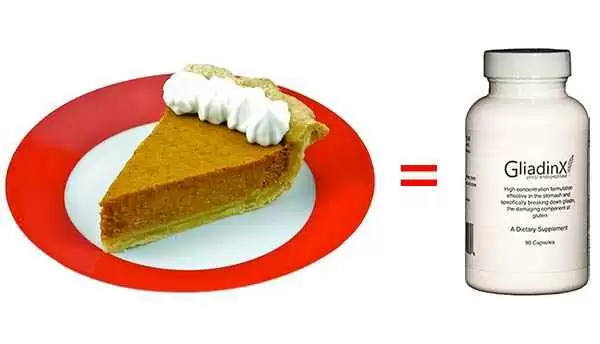Celiac.com 08/27/2024 - With increasing awareness and diagnosis of celiac disease and non-celiac gluten sensitivity, strict adherence to a gluten-free diet is more critical than ever to prevent symptoms and long-term complications. However, despite best efforts, accidental gluten ingestion can still occur, causing significant distress for those affected.
In fact, data shows that most celiacs are regularly exposed to gluten.
Celiac.com Sponsor (A12):
Moreover, data also shows that most exposure to gluten is silent and ongoing.
Fortunately, there are steps you can take to alleviate symptoms and support recovery. This article combines practical home remedies and strategies shared by our community members, along with insights from recent research.
Understanding the Impact of Gluten Exposure
Accidental gluten ingestion can lead to a range of symptoms for individuals with celiac disease, including upset stomach, inflammation, diarrhea, bloating, and skin rash. Recognizing these symptoms early is essential for implementing effective management strategies.
Steps to Alleviate Symptoms
Taking one or more of these ten-plus steps after gluten exposure can help minimize its impact.
Hydration and Electrolyte Balance
Stay hydrated and consider gluten-free electrolyte-replenishing drinks to maintain balance, especially if diarrhea is severe.
Rest and Heat Application
Rest and apply heat to alleviate stomach pain and cramping. Use a heating pad or hot water bottle for added comfort.
Return to a Strict Gluten-Free Diet & Avoid Additional Irritants
Recommit to a strict gluten-free diet immediately, avoiding processed or spicy foods that may further irritate the digestive system.
Fasting: A Potential Immune System Reset
Some studies suggest that intermittent fasting may help reset the immune system and reduce inflammation, which could be beneficial for those suffering from an adverse gluten reaction. However, always consult with a healthcare professional before starting any fasting regimen.
Digestive Enzymes for Bloating Relief
Digestive enzyme supplements, such as GliadinX (a site sponsor here) can provide relief from bloating by assisting in the digestion of gluten, although this enzyme is best taken before accidental gluten ingestion, for example, before you eat a gluten-free meal in a restaurant.
Herbal Remedies and Medications
Herbal remedies like green tea, peppermint tea, and echinacea are often reported to offer soothing effects for digestive discomfort. Additionally, antihistamines such as Benadryl, Claritin, or Zyrtec may provide relief for some individuals. Marshmallow root is known for its potential to soothe stomach and gas pain. However, before using herbal remedies, especially if you are on medication, consult your healthcare provider to avoid potential interactions.
Probiotics for Gut Health
Incorporating probiotics into a general gut maintenance program can be beneficial both before and after accidental gluten exposure. Recent research suggests that specific strains of probiotics, such as Lactobacillus reuteri and Bifidobacterium longum, may be especially beneficial for maintaining gut health in individuals with celiac disease.
Nutrient-Rich Broth for Gut Healing
Nutrient-rich broths, such as bone broth, which is rich in collagen and amino acids, can support gut healing and provide essential nutrition. Incorporating these broths into your diet can be particularly beneficial in promoting recovery after gluten exposure.
Long-Term Strategies for Intestinal Health
Rebuilding intestinal health is crucial for managing celiac disease. Implementing an anti-inflammatory diet, rich in omega-3 fatty acids, antioxidants, and low-FODMAP foods, can aid in reducing inflammation and promoting gut healing. Supplements such as L-Glutamine, tryptophan, coconut oil, fat-soluble vitamins (A, E, D, and K), calcium, magnesium, B-vitamins, essential fatty acids, and probiotics are also beneficial in the healing process.
Personalized Approach and Seeking Medical Advice
A personalized approach to managing accidental gluten ingestion is important. It is advisable to seek medical advice and consult healthcare professionals, such as dietitians, to develop tailored strategies and receive personalized guidance based on individual needs.
Coping with Emotional Challenges
Managing accidental gluten ingestion involves addressing not only the physical symptoms, but also the emotional challenges that may arise. Online support groups, teletherapy, and mindfulness practices, such as meditation and yoga, are valuable tools for navigating the emotional aspects of living with celiac disease. Prioritizing self-care and seeking support from loved ones or professional counselors can also help in managing the stress associated with gluten exposure.
Tummy Rescue Smoothie Recipe
This smoothie is designed to soothe the digestive system after accidental gluten exposure.
- 1 cup hot freshly brewed nettle leaf tea (anti-histamine, anti-spasmodic)
- ¼ cup Santa-Cruz pear juice (flavoring/sweetener - pears are the least allergenic of fruits)
- ¼-½ teaspoon whole fennel seed (reduces gas & bloating)
- 2 Tablespoons slippery elm powder (healing & soothing to mucous membranes and the gut)
- 1 Tablespoon flax seed oil (soothing, anti-inflammatory)
- ¼ - ½ cup rice milk (hypoallergenic, use to thin to desired consistency)
Directions:
Purée in blender until smooth, and slightly thickened. It is most soothing when consumed while still warm from the hot tea.
This smoothie is best consumed in small sips over an hour or so. Magnesium also helps with pain and relaxes muscle spasms, so taking a little extra magnesium may be of benefit. For severe symptoms, drink the smoothie while reclining in bed, with a warm castor oil pack over the abdomen, covered by a heating pad set on low. Do not leave the pack in place for more than an hour.
Conclusion
Accidental gluten ingestion can be distressing for individuals with celiac disease. While there is no clinically accepted treatment for gluten ingestion, practical steps can help manage symptoms and support recovery. By implementing strategies such as immediate symptom relief, adherence to a strict gluten-free diet, digestive enzymes, herbal remedies, probiotics, nutrient-rich broth, and long-term gut healing, individuals with celiac disease can minimize the impact of accidental gluten exposure and promote their overall well-being.
Staying informed about new research and potential treatment options is essential as our understanding of celiac disease continues to evolve. By following these guidelines and seeking appropriate medical advice, individuals can navigate the challenges of accidental gluten exposure with greater ease and maintain their health.
If you have any thoughts or insights on how best to treat accidental gluten ingestion for people with celiac disease or gluten intolerance, please share them in our comments section below.











Recommended Comments
Create an account or sign in to comment
You need to be a member in order to leave a comment
Create an account
Sign up for a new account in our community. It's easy!
Register a new accountSign in
Already have an account? Sign in here.
Sign In Now